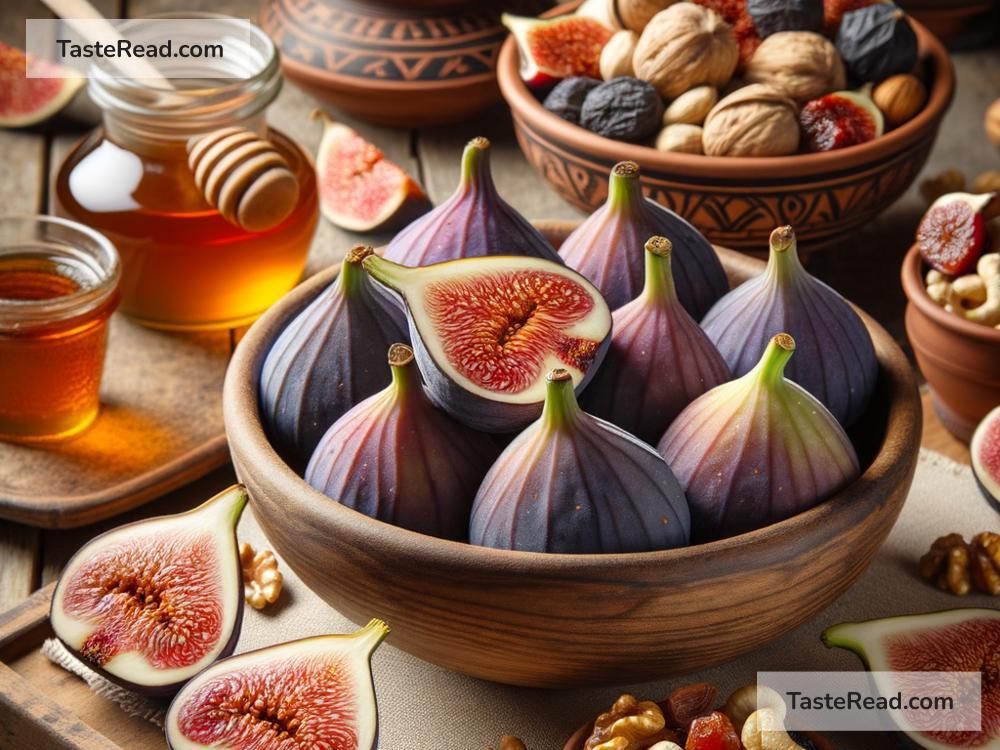The Surprising Benefits of Figs for Bone Health
When we think about maintaining strong and healthy bones, we often focus on dairy products like milk, cheese, and yogurt because they’re rich in calcium. While these are indeed excellent sources of nutrients for bone health, figs are one food that doesn’t get nearly enough attention in this area. These small, sweet fruits aren’t just delicious — they’re packed with nutrients that can play a key role in keeping your bones strong and healthy. In this article, we’ll explore the surprising benefits of figs for bone health and why they deserve a spot in your daily diet.
Why Bone Health Matters
Our bones are the framework of our bodies, giving us stability, mobility, and protection for our organs. However, as we age, our bone density tends to decline, which can lead to conditions like osteoporosis. Osteoporosis causes bones to become weak and fragile, increasing the risk of fractures. Factors like an unhealthy diet, lack of exercise, and insufficient intake of bone-supporting nutrients can speed up this process. That’s why it’s so important to care for our bones by eating a nutrient-rich diet, exercising regularly, and opting for foods like figs that naturally support bone health.
What Makes Figs Special?
Figs might be small, but they pack a big punch when it comes to nutrients. They’re loaded with vitamins, minerals, and antioxidants that can help your body in countless ways. In particular, figs are a great source of calcium, magnesium, potassium, and vitamin K — all of which are essential for bone health. Let’s break down what these nutrients do and why they’re so important:
-
Calcium
Calcium is the “superstar” of bone health. It’s the most abundant mineral in the body and plays a key role in maintaining bone strength and density. If your body doesn’t get enough calcium, it will start pulling calcium from your bones, making them weaker over time. Figs are a natural source of calcium, making them a great addition to your diet if you’re trying to protect your bones. -
Magnesium
Magnesium works hand-in-hand with calcium to ensure your bones stay strong. It helps your body absorb calcium and supports the functioning of enzymes that repair and maintain bones. Eating magnesium-rich foods like figs can improve bone mineral density and lower the risk of fractures. -
Potassium
Potassium is another important mineral for bone health that many people overlook. It helps prevent the loss of calcium from your bones and keeps your body’s acid-base balance in check. Studies have shown that diets high in potassium can reduce bone loss and improve strength. Figs are an excellent source of potassium and can be a simple way to boost your intake. -
Vitamin K
Vitamin K is essential for activating proteins that bind calcium to bones. Without sufficient vitamin K, your bones might become more brittle and prone to injury. Figs contain this important vitamin, which means they can help reduce the risk of bone-related issues like osteoporosis over time.
Other Bone-Friendly Benefits of Figs
Aside from their impressive nutrient profile, figs offer additional health benefits that support your bones indirectly. For example:
- Antioxidants: Figs are high in antioxidants that help fight inflammation in the body. Chronic inflammation can weaken bones over time, so eating antioxidant-rich foods like figs may help protect them.
- Fiber: Figs are also a good source of dietary fiber, which promotes gut health. A healthy gut improves the absorption of bone-supporting nutrients like calcium and magnesium.
- Low in Sodium: Excessive sodium intake can lead to calcium loss from the bones. Figs are naturally low in sodium, making them a smart choice for bone-conscious diets.
Who Can Benefit from Adding Figs to Their Diet?
Anyone can benefit from eating figs, but they’re especially useful for people who are at a higher risk of bone-related issues, such as older adults, postmenopausal women, and people with nutrient deficiencies. Even children and teenagers, whose growing bodies are building a strong foundation for the future, can benefit from the bone-strengthening nutrients in figs.
How to Enjoy Figs
The best part about figs is that they’re incredibly versatile and easy to incorporate into your meals. Fresh figs are delicious and can be eaten as a snack on their own. Dried figs are also a great option and have a concentrated sweetness that makes them a fantastic addition to dishes like oatmeal, salads, or smoothies. You can even use figs in baked goods or cook them with savory dishes like meats and cheese platters. The possibilities are endless!
If you’re not sure where to start, here are a few simple ways to enjoy figs:
– Add sliced fresh figs to your morning cereal or yogurt.
– Include dried figs in trail mixes or energy bars for an on-the-go snack.
– Mix chopped figs into salads for a hint of natural sweetness.
– Blend figs into smoothies with spinach, banana, and almond milk for an extra dose of nutrients.
Final Thoughts
Figs may be small, but they’re mighty when it comes to supporting bone health. Packed with calcium, magnesium, potassium, and vitamin K — along with antioxidants and fiber — figs are a natural way to help keep your bones strong and healthy. Whether you’re young and looking to build strong bones or older and trying to protect bone density, adding figs to your diet can make a big difference. So the next time you’re looking for a sweet, nutritious snack, reach for some figs — your bones will thank you!
Healthy eating doesn’t have to be complicated, and it can be downright tasty when you choose foods like figs. Why not start today?


